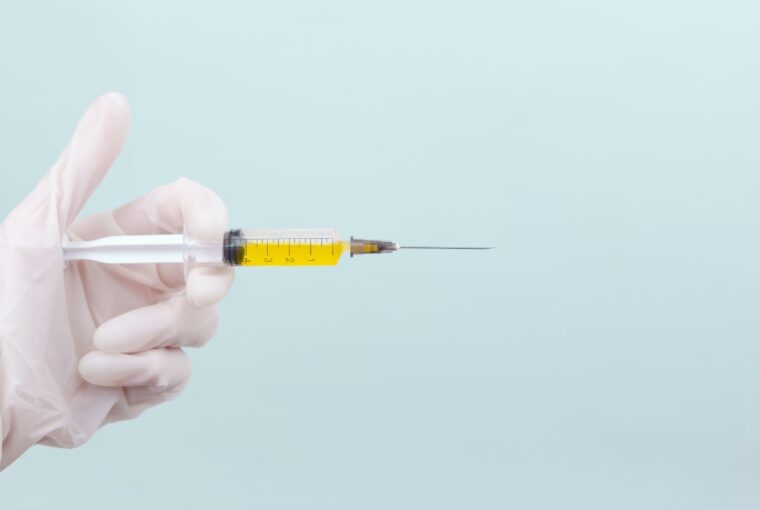Doctors often prescribe steroids in conjunction with antibiotics in order to maximize the effectiveness of treatment and reduce potential side effects. Steroids are powerful drugs that can be used to reduce inflammation, suppress the immune system, and even reduce the body’s natural response to infections. When combined with antibiotics, these drugs can be used to treat a variety of illnesses, from minor ailments to more serious conditions. By combining antibiotics and steroids, doctors are able to kill the bacteria causing the infection while preventing the body from responding too aggressively to the treatment. This allows doctors to provide the most effective treatment possible while ensuring the patient’s safety.
Why Do Doctors Prescribe Steroids With Antibiotics
The main reason why doctors prescribe steroids with antibiotics is to reduce inflammation. Inflammation is a natural response of the body to an infection, and while it can be beneficial in some cases, it can also cause long-term damage to tissues and organs if left unchecked. Steroids help reduce inflammation by suppressing the immune system and preventing it from overreacting to the infection. This helps the body heal faster and reduces the risk of long-term damage.
Why Do Doctors Prescribe Steroids With Antibiotics?
- Steroids are powerful drugs that can be used to reduce inflammation, suppress the immune system, and even reduce the body’s natural response to infections.
- When combined with antibiotics, these drugs can be used to treat a variety of illnesses, from minor ailments to more serious conditions.
- By combining antibiotics and steroids, doctors are able to kill the bacteria causing the infection while preventing the body from responding too aggressively to the treatment. This allows doctors to provide the most effective treatment possible while ensuring the patient’s safety.
- Steroids and antibiotics work best when used together because they have a synergistic effect. This means that the two treatments work better together than either one would alone.
- When used in conjunction with antibiotics, steroids can help to shorten the duration of the infection and reduce the amount of pain and discomfort that the patient may experience.
- Steroids can also be used to prevent future infections from occurring. By suppressing the immune system, steroids can help to prevent the body from attacking healthy tissue.
- By using steroids and antibiotics together, doctors can provide the best possible treatment for their patients.
How Do Steroids And Antibiotics Work Together?
- Steroids work to reduce inflammation and suppress the immune system.
- Antibiotics work to kill the bacteria causing the infection.
- By combining these two treatments, doctors are able to provide the most effective treatment possible while ensuring patient safety.
- Steroids and antibiotics are often used together to treat a variety of illnesses, from minor ailments to more serious conditions.
Benefits Of Combining Antibiotics And Steroids
- Steroids can reduce inflammation and suppress the immune system.
- Steroids can be used to treat a variety of illnesses, from minor ailments to more serious conditions.
- By combining antibiotics and steroids, doctors are able to kill the bacteria causing the infection while preventing the body from responding too aggressively to the treatment.
- This allows doctors to provide the most effective treatment possible while ensuring the patient’s safety.
- Combining antibiotics and steroids can be an effective treatment for a variety of infections.
- There are few side effects associated with this treatment combination.
- Steroids and antibiotics can be used together to treat a variety of illnesses.
Potential Side Effects Of Combining Antibiotics And Steroids
- Steroid side effects can include increased appetite, weight gain, and water retention.
- The use of steroids can increase the risk of developing cancer.
- Steroid side effects can also include serious skin conditions, such as acne and eczema.
- Steroids can also increase the risk of miscarriage or birth defects in pregnant women.
- If used in high doses, steroids can also cause liver damage.
- Steroids can also increase the risk of developing diabetes.
- Steroid side effects can also include mood changes, such as aggression and depression.
How To Determine If A Steroid Prescription Is Necessary
- Consult with a doctor. If you are experiencing signs or symptoms of an infection, consult with your doctor to determine if a steroid prescription is necessary.
- Check the symptoms. Although it is always best to consult with a doctor, checking the symptoms can help you determine if a steroid prescription is necessary.
- Evaluate the severity of the infection. Evaluating the severity of an infection can help you determine if a steroid prescription is necessary.
- Consider the patient’s age and health. Age and health can also be factors in determining if a steroid prescription is necessary.
- Consider the type of infection. Certain types of infections require different treatments, and this information should be discussed with a doctor.
- Consider the potential side effects. Although the benefits of using steroids in conjunction with antibiotics often outweigh the potential side effects, be sure to discuss any potential side effects with your doctor.
- Consult with a pharmacist. Pharmacists are often able to provide more information on the use of steroids and antibiotics, and they can also help you find the best combination for your specific needs.
Types Of Infections That Can Be Treated With Antibiotics And Steroids
- Acute sinusitis. Acute sinusitis is an infection of the sinuses that can be treated with antibiotics and steroids.
- Bronchitis. Bronchitis is an infection of the respiratory system that can be treated with antibiotics and steroids.
- Urinary tract infection. Urinary tract infections can be treated with antibiotics and steroids, depending on the type of infection.
- Influenza. Influenza is a viral infection that can be treated with antibiotics and steroids, depending on the type of influenza virus.
- Pneumonia. Pneumonia is a serious lung infection that can be treated with antibiotics and steroids, depending on the type of pneumonia virus.
Conclusion
Antibiotics and steroids are commonly prescribed when treating bacterial infections. These drugs are effective when used together, as they can kill bacteria while also preventing the body from responding too aggressively to the treatment. By combining antibiotics and steroids, doctors are able to treat a variety of bacterial infections while reducing the risk of complications.
FAQ
1. How effective are antibiotics and steroids when used together?
The combination of antibiotics and steroids is very effective at treating bacterial infections. The drugs work together to kill bacteria while also preventing the body from responding too aggressively. This combination is often recommended when treating acute sinusitis, bronchitis, urinary tract infection, influenza, and pneumonia. While the benefits of using antibiotics and steroids often outweigh the potential side effects, be sure to discuss any potential side effects with your doctor.
2. What are the potential side effects of using antibiotics and steroids together?
The potential side effects of using antibiotics and steroids together can depend on the type of infection being treated. However, some common side effects include nausea, vomiting, diarrhea, and abdominal pain. These side effects are usually mild and generally resolve within a few days. If they persist or become severe, be sure to contact your doctor.
3. What should I do if I experience side effects from antibiotics and steroids?
If you experience side effects from antibiotics and steroids, be sure to contact your doctor. If the side effects are mild, you can usually self-treat them by taking over-the-counter medications. If the side effects are more severe, your doctor may prescribe a different type of medication or recommend hospitalization.




